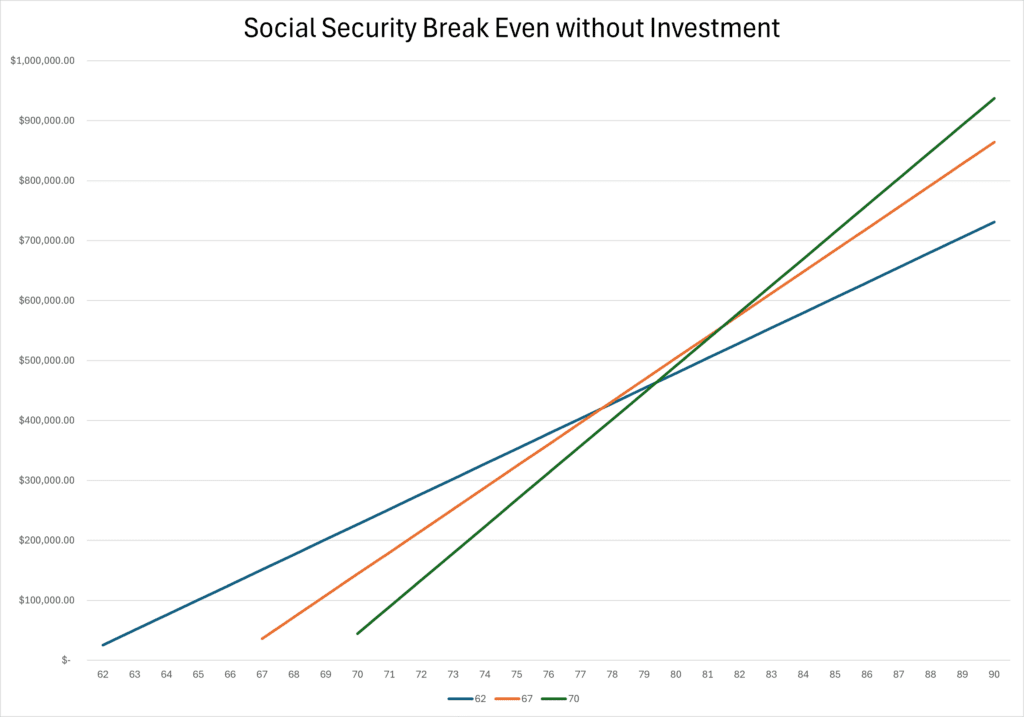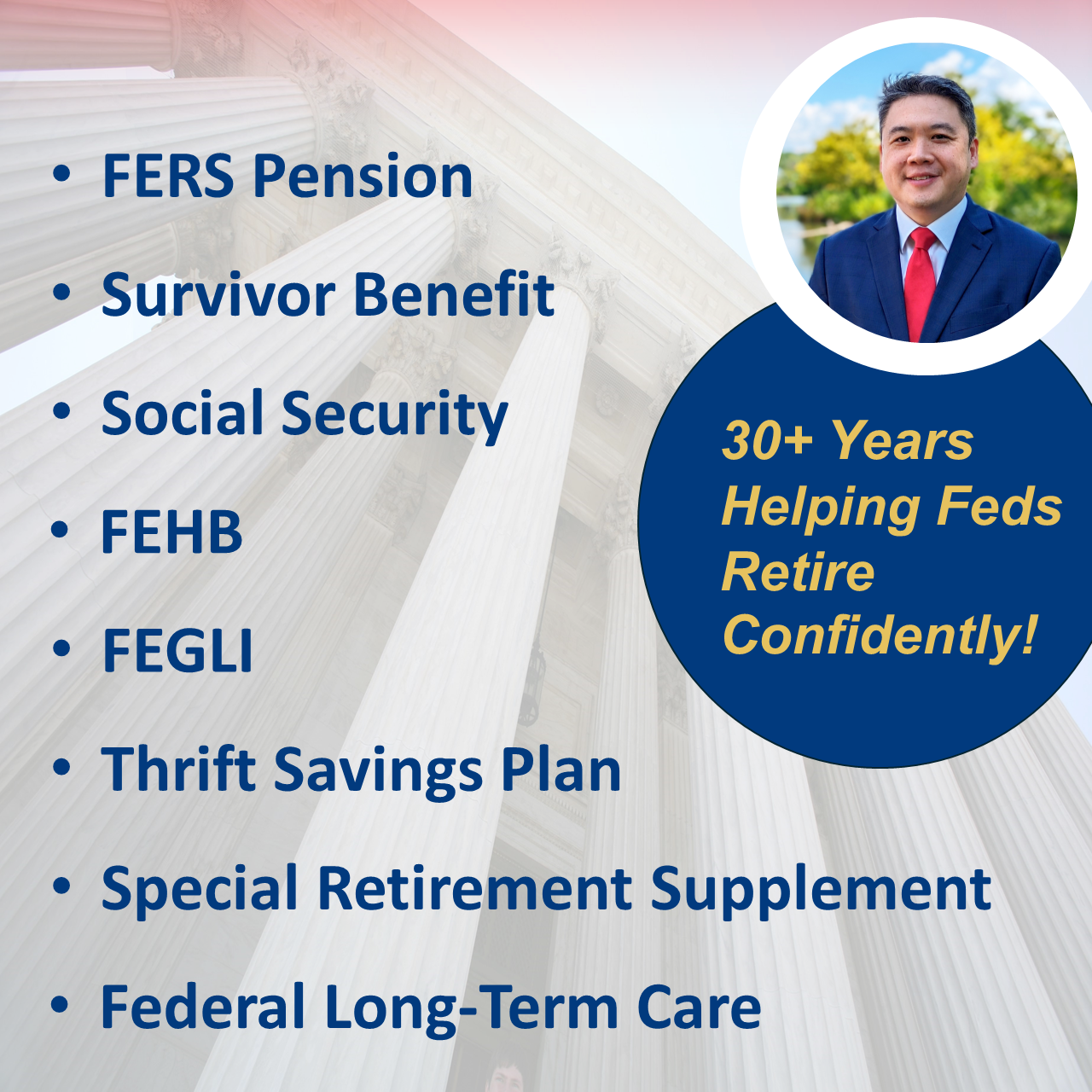What is the Best Age to take Social Security? Pros & Cons of Starting Earlier or Later
This article aims to assist retirees in determining the optimal age to start receiving Social Security benefits, weighing the advantages and disadvantages of taking benefits earlier versus waiting, and taking into account other factors that can influence your decision.
We often hear the advice to delay taking Social Security for as long as possible to secure a larger monthly benefit later on. However, whether this strategy is right for you depends on various factors. If you know how long you will live the decision becomes very easy. Additionally, if you’re concerned about the future of these benefits, read more about the possibility of the Social Security trust fund going bankrupt. There are several considerations to weigh when determining the optimal time to start receiving Social Security benefits.
- Financial situation
- Health and longevity
- Spouse’s benefits and age
- Taxes
- Earnings test and decision to work
Social Security Benefit Amounts
We recommend that everyone regularly check their Social Security summary and earnings history. Your Social Security summary will show your estimated benefit amounts ranging from age 62 to 70. It is important to keep track that SSA has your earnings history correct as mistakes on your earnings history can drastically reduce the benefit you are entitled to. Learn more about how to correct your How to Report and Correct Your Social Security Earnings Record.
You can find your estimated benefit amounts at www.ssa.gov.
Social Security Before Full Retirement Age
The short version: your social security will be reduced by 30% if you take at 62.
Long version: in the case of early retirement, a benefit is reduced 5/9 of one percent for each month before normal retirement age, up to 36 months. If the number of months exceeds 36, then the benefit is further reduced 5/12 of one percent per month.
For example, if the number of reduction months is 60 (the maximum number for retirement at 62 when normal retirement age is 67), then the benefit is reduced by 30 percent. This maximum reduction is calculated as 36 months times 5/9 of 1 percent plus 24 months times 5/12 of 1 percent.
Social Security Delayed Beyond Full Retirement Age
If you decide to delay beyond your full retirement age (FRA), then you will receive an 8% increase for every year after your FRA. Potentially increasing your benefit by 24% if you delay until age 70.
The Break-Even Point for Taking Early or Delaying
One crucial aspect to consider is weighing the pros and cons of taking Social Security benefits earlier versus waiting for a larger amount. Clarifying the breakeven points in these decisions can alleviate uncertainties regarding the optimal age for you. The breakeven point signifies when the financial advantage of waiting longer to receive a larger Social Security benefit outweighs taking it immediately.
Let’s illustrate this with an example to better understand the breakeven points. We will use the Social Security benefit amounts below.
62 = $2,100
67 = $3,000
70 = $3,720

Let’s say you decide to take Social Security at age 67 at $3,000/month. You would forgo the opportunity to take Social Security at age 62 at $2,100/month. You will have a lost opportunity cost to receive $126,000 over 5 years. The question is, when do you break even on your decision to wait for $900/month more at age 67?
The break-even point would be around age 79. If you do not live past age 79 it would have been more beneficial to take Social Security earlier. If you want to reconsider after starting earlier, see how to suspend and restart your benefits for a higher amount.
What if you decide to wait until age 70? The break-even age would be around age 82.
Other Factors to Consider When Making a Decision
While break-even calculations can offer valuable insight into the optimal timing for claiming Social Security benefits, relying solely on them is not advisable when making your decision. There are several other factors to consider such as financial situation, health and longevity, spouse’s age and benefit amount, tax brackets, Medicare, retirement earnings test, and will you be working between the ages of 62 to 70.
Your Financial Situation
Other factors to consider:
- Do you have a guaranteed pension? Does it provide a COLA?
- Do you have assets you can draw income from?
- Do you have long-term care insurance?
- Are you working full-time or part-time?
Typically, advice you will see on Social Security is targeted toward private sector employees and will suggest working longer and delaying benefits for the highest payout possible. This guidance stems from the fact that many private sector workers lack access to pensions and often have insufficient savings. Consequently, they must rely heavily on Social Security as their only source of income in retirement.
However, the Social Security strategy for a federal employee is more nuanced and complex. Many federal employees benefit from substantial, COLA-adjusted pensions, along with robust savings. This is an important distinction as it allows federal employees more options when determining when to take Social Security, primarily the decision to take sooner rather than later. This distinction is crucial, given federal retirees’ income sources are not solely dependent on Social Security.
Health and Longevity
When deciding the ideal age to start receiving Social Security benefits, it’s essential to factor in your health status and family history of longevity. If you enjoy good health and have a family history of longevity, it’s likely beneficial to wait longer before claiming benefits. Conversely, if your health is poor, you might consider taking Social Security earlier to optimize the benefits you receive.
Spouse’s Benefit and Age
If you’re married, it’s important to consider your spouse’s benefits. Claiming Social Security earlier might lead to reduced survivor benefits for your spouse. This could result in a lower benefit amount for him/her, especially if their Social Security amount is lower than yours. In the event of your passing, your spouse would receive the higher of the two benefit amounts between the two of you.
Estimated Income: Taxes & Medicare
If you’re currently working and in a higher tax bracket, but anticipate being in a lower tax bracket during retirement, delaying Social Security could be advantageous. This strategy can help you avoid being taxed at a higher rate and maximize your overall retirement income.
Consideration should also be given to Medicare. Medicare Part B and D premiums are income-based. If you’re still working, it might be prudent to postpone claiming Social Security to avoid pushing your Medicare premiums into a higher monthly bracket. This situation could arise if you’ve retired from federal service and embarked on a second career, work part-time, or own a small business.
Retirement Earnings Test and Working
If you’re working and haven’t reached your full retirement age (FRA), it’s important to be mindful of the earnings test. Claiming Social Security before reaching your FRA and surpassing the income threshold of $22,320 could result in receiving none of the benefits, and in certain cases, you may never recover all the benefits withheld by the SSA.
If you are below your FRA, there is a $1 reduction for every $2 of earned income above $22,320. In the year a person is reaching their FRA, there is a $1 reduction for every $3 earned income above $59,520.
An easy rule: if you are working and earning above $22,000, then you should delay taking Social Security. Once you hit your FRA, the earnings test no longer applies and you can earn any amount above the limit. Be mindful of the tax brackets if you are working and receiving Social Security after FRA.
You can learn more about this topic in our detailed guide on the Social Security and the Retirement Earnings Test (RET).
Reach Out to Us!
If you have additional federal benefit questions, contact our team of CERTIFIED FINANCIAL PLANNER™ (CFP®), Chartered Federal Employee Benefits Consultants (ChFEBC℠), and Accredited Investment Fiduciary (AIF®). At PlanWell, we focus on retirement planning for federal employees. Learn more about our process designed for the career federal employee.
Preparing for federal retirement? Check out our scheduled federal retirement workshops. Sign up for our no-cost federal retirement webinars. Make sure to plan ahead and reserve your seat for our FERS webinar, held every three weeks. Want to have PlanWell host a federal retirement seminar for your agency? Reach out, and we’ll collaborate with HR to arrange an on-site FERS seminar.
Want to fast-track your federal retirement plan? Skip the FERS webinar and start a one-on-one conversation with a ChFEBC today. You can schedule a one-on-one meeting.










